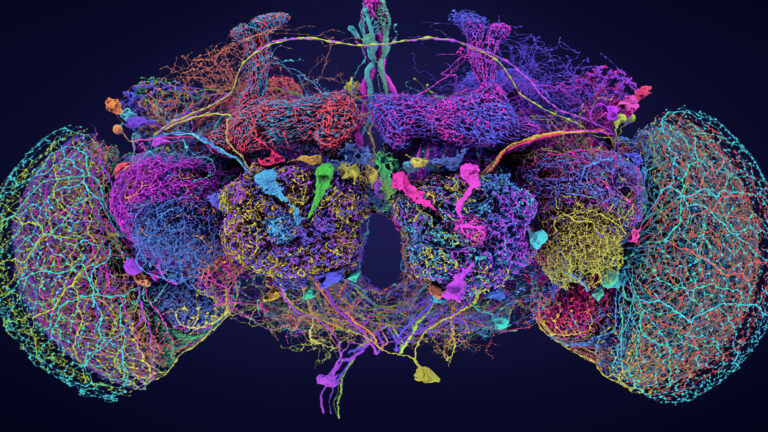science
This fruit fly brain has neuroscientists 'blown away'

Courtesy Flywire Consortium
How many scientific labs does it take to map the brain of a fruit fly? Almost 50, it turns out. The full map (fancy word "connectome") was published yesterday in a series of papers in Nature. And it's not just about better understanding these little pests: Insights from the map could help researchers better understand how to treat diseases that affect neural circuits, like Alzheimer's and Parkinson's.
In the past year, researchers have also created maps of a fly larva, a small part of a mouse brain, and one single cubic millimeter of a human brain. "The history of neuroscience can now be divided into two eras, BC and AC," one researcher quipped at a press conference — before and after connectome. To successfully map the whole fruit fly brain expands the boundaries of what neuroscientists are capable of, experts say. Read more from STAT's Anil Oza.
health tech
Six scientists shaping the field of brain-computer interfaces
It will be several years before a viable brain-computer interface product is on the market, whether it restores movement or sensation or facilitates communication with a computer. But research has dramatically advanced our understanding of what's possible in the nearly 20 years since a neuroscientist first enabled a paralyzed patient to operate a prosthetic arm with just his mind.
STAT's Timmy Broderick has the six people you need to know in the field. Sergey Stavisky, for example, is building a speech decoder to help people communicate after they lose the ability to talk. Mariska Vansteensel chronicled an ALS patient's use of a BCI device at home for seven years in a recent NEJM paper. Read more about the leaders.


No comments